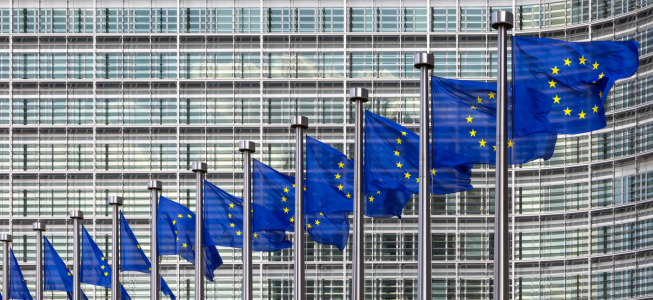News from Zentiva

November 5, 2024 / 2024
Zentiva raises alarm about EU’s Urban Waste Water Treatment Directive
The directive might cause massive medicine shortages, affecting millions of patients across Europe.
Zentiva, a Pan-European company manufacturing and supplying generic medicines, raises alarm about the impact of the Urban Wastewater Treatment Directive (UWWTD), adopted today by the EU. The Directive mandates that only the pharmaceutical and cosmetic sectors finance the upgrades and running costs of several hundred wastewater treatment plants across Europe. The industry, already burdened by absorbing inflation, rising costs of workforce, energy, ingredients, packaging materials, and transportation, and dealing with a disrupted supply chain due to war situations in several areas, faces a major blow with the UWWTD. With market prices capped, the resulting massive shortages of medicines will leave European patients, who rely on these medicines every day, unable to find them in pharmacies any longer.
Brussels/Prague, November 5th, 2024: Despite numerous warnings and serious concerns from the industry and 15 member states about the consequences of the Urban Waste Water Treatment Directive, it has been formally adopted today by the European Council. The costs of this system, ranging between €5 billion per year[1] according to German cost projections and and €11 billion per year[2] according to European water industry sources, would create massive medicine shortages, have catastrophic consequences for patient access to medicines, and jeopardize the sustainability of healthcare systems in Europe. Generic medicines, which represent 70% of all prescribed medicines in Europe and 9 out of 10 critical medicines while accounting for just 19% of the market value[3], are particularly vulnerable to the UWWTD tax due to their high volumes and strictly capped prices. The medicines most at risk from this system are those needed by hundreds of millions of European citizens.
“It is the elderly man picking up his heart medication in a rural pharmacy, the newly diagnosed diabetic patient whom we help to mitigate the risks of the disease, or the mother needing fever medicine for her toddler who ultimately bear the consequences of the new Urban Waste Water Treatment Directive. We all remember the situation with medicine shortages not that long time ago caused by the pandemics, the war in Ukraine, and other factors. Genuine hope for a self-sufficient Europe emerged as discussions about supporting domestic manufacturers unfolded. Yet, this directive now risks undoing that progress, standing in the way of Europe’s path to healthcare resilience and sustainability. This isn’t the way forward,” says Steffen Saltofte, CEO of Zentiva.
At Zentiva, we believe patients must not suffer the consequences of this unworkable and unfair European law. Our medicines are produced at high volumes and cost only a few eurocents a day, making it impossible to further absorb costs like this new waste water tax. “The additional taxes might put such a high burden on generic companies that they will not be able to sustain their full operations and will be forced to stop the production of some medicines. Money will be redistributed from investments into a greener future to paying taxes. With such an approach, Europe will not stay competitive for the future, and patients in Europe will be left without access to affordable healthcare,” comments Steffen Saltofte on the impact.
The implementation of the Green Deal and its implications for the pharmaceutical industry, especially for the Generics Industry in Europe, is far-reaching. While the industry supports the Paris Agreement, the systemic framework in which the industry is currently operating has become a real challenge. To ensure that both environmental and healthcare objectives are met, we call for a comprehensive review of the Urban Waste Water Treatment Directive. To prevent negative outcomes, a better-balanced model needs to be adopted that includes broader contributions and ensures that we are able to meet environmental goals without compromising a sustainable healthcare in Europe.
Media Contact:
Ines Windisch
Head of Communications, Corporate Affairs & Sustainability
ines.windisch@zentiva.com
[1] German Environment Agency, Scientific Opinion Paper “Moving forward: The European Commission’s Proposal for a Recast Urban Wastewater Treatment Directive”, April 2023, p. 7-8, available here
[2] EurEau, Position Paper on the Proposal for a Directive concerning urban wastewater treatment (recast), February 2023, p. 5, available here
[3] IQVIA, “Beneath the Surface: Unravelling the True Value of Generic Medicines”, April 2024, available here